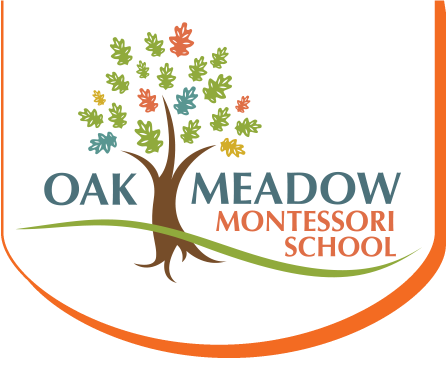Parents tell me how much they appreciate the focus on social-emotional learning (SEL) at Oak Meadow School. They often tell me this is the most important thing we do here to benefit their child. This past Tuesday, teachers spent a full day on campus with consultant Lynne Griffin, digging deeply into the topic of SEL and exploring ways to strengthen our commitment to providing students with the kind of learning environment and the social and emotional skills that will equip our students with a real advantage in school and life.
“This school is already so far down the SEL path,” Lynne shared with our team of highly engaged and motivated teachers and staff. “Now we’re just turning up the dial.”
For parents who may wonder why SEL is so important, here are just a few reasons shared by Lynne:
- “Emotions are central to our ability to survive”
- “We cannot make decisions without emotions because our emotions enable us to be motivated”
- “Emotions help us to understand others, and for others to understand us”
- “A lack of social and emotional skill building in kids is putting them in jeopardy — in school, in work, and in life”
 That last statement was also reflected in a sobering news report this week from the Wall Street Journal, indicating that youth suicides (ages 10-24) have increased 56% in just the last decade, based on a study by the Centers for Disease Control. You can read more here. Although the cause of increased depression and anxiety among youth is complicated, experts agree that more attention to their social and emotional needs is essential to addressing this alarming trend.
That last statement was also reflected in a sobering news report this week from the Wall Street Journal, indicating that youth suicides (ages 10-24) have increased 56% in just the last decade, based on a study by the Centers for Disease Control. You can read more here. Although the cause of increased depression and anxiety among youth is complicated, experts agree that more attention to their social and emotional needs is essential to addressing this alarming trend.
Given this urgency, I thought parents would like to know more about the topics we discussed with Lynne Griffin. I have also highlighted some of the areas where we are working to strengthen our commitment to SEL for students and the whole community.
We teach SEL skills to students as a curriculum in its own right
That means starting with the five core competencies defined by the Collaborative for Academic, Social, and Emotional Learning (CASEL): self awareness, self management, social awareness, relationship skills, and decision-making. Our curriculum includes helping students to understand these terms (age appropriate), and to give them opportunities to improve their ability to use these skills through role playing, practice, reflection, and real-life application. For our teachers, this includes checking in with students to see how they’re doing, being alert to mood shifts, figuring out how specific circumstances or situations might affect a child’s behavior or response, and helping them to be proactive by having the right strategy to use when it’s needed. While neurologists tell us we’re all “hardwired” differently, this kind of SEL curriculum is taught in a way that is adapted to each child’s own unique tendencies. And research shows that students are profoundly benefitted by using SEL skills in this way.
We look for natural connections between SEL and the academic curriculum
Parents at a Montessori school can see how SEL is already inherent in the curriculum itself, for instance through:
- Repetition and practice
- Patience
- Support
- Meeting each child where he or she is
- Working collaboratively
- Differentiating the curriculum to fit the child’s pace and interests
- Helping each child advance to the next challenge in a personalized way
- Meeting the needs of individual students while attending to the whole class
- Weaving together mind and heart and hands
- Making learning experiential and fun
- Benefits of the multi-age classroom where mentoring and learning from peers is the norm
- Making time and space for students to reflect upon what they have learned
One of our goals this school year is to continue effectively integrating SEL into the curriculum.
 In my visits to our classrooms, I’m always impressed at the way students continuously practice self-assessment. This is an enormous shift away from traditional education. Rather than praising a child for getting a specific outcome or grade on a test, our teachers help kids to be effective judges of their own work, assessing what they have done particularly well, and thinking deeply about what they could do better. According to Lynne Griffin, “This approach to learning changes the way the brain thinks.” It prepares students to adopt a lifestyle of learning.
In my visits to our classrooms, I’m always impressed at the way students continuously practice self-assessment. This is an enormous shift away from traditional education. Rather than praising a child for getting a specific outcome or grade on a test, our teachers help kids to be effective judges of their own work, assessing what they have done particularly well, and thinking deeply about what they could do better. According to Lynne Griffin, “This approach to learning changes the way the brain thinks.” It prepares students to adopt a lifestyle of learning.
We make sure everyone at school benefits from a positive learning environment
Once again this is deeply rooted in our Montessori philosophy. The traditional model of education sees children mostly as empty containers to be filled with knowledge provided by the adults. We see children in a very different way. We believe children are already hardwired with all of the tools they need to be successful, and so we nurture and guide them to connect with these resources and tools.
- We seek to listen to each other and raise our self-awareness
- We are intentional about finding ways to make sure all children are feeling happy, and not just most of the children
- If someone does not feel respected, we make sure there is someone at school to talk to safely
- Rather than creating an environment of mindless adherence to rules, we provide a culture of responsibility and accountability where students have a role in defining expectations about how we treat each other, as well as how to make amends when emotional or social missteps occur
- When people are upset, we are willing to pause and solve the problem
To build our own capacities in creating a positive learning environment for all students, teachers and staff will work with Lynne Griffin again in January to dig into the work of the Yale Center for Emotional Intelligence. Parents who are interested in knowing more about this research will find it helpful to read Permission to Feel: Unlocking the Power of Emotions to Help our Kids, Ourselves, and Our Society Thrive, by Marc A. Brackett.
 We will continue to communicate with parents, and include parents in the work of SEL
We will continue to communicate with parents, and include parents in the work of SEL
Being a parent today is hard work, and we understand that. Parents face challenges today that did not exist just a decade or two ago. Technology and the Internet are hugely impacting children and adults. In most households, both parents are involved in highly demanding jobs, leading to a culture of “activities” for children whenever they are not at school. The teachers and staff at Oak Meadow want our parents to know that we are here to support you and your children. We put a priority on having an environment where parents are welcome, listened to, and understood. We seek to keep parents well informed about student progress, and when there are obstacles or challenges in a child’s learning, we seek to be as proactive and transparent as possible in discussing that. We are re-assessing how we can make sure that all of the events on campus are designed to meet the needs of the parents. We welcome your input about this.
There is a growing recognition that social-emotional intelligence is the single most important factor in raising a new generation of leaders in the United States and around the globe. That was the thesis of the groundbreaking book more than a decade ago by Daniel Goleman: Primal Leadership: Unleashing the Power of Emotional Intelligence. Social-emotional learning is ultimately about reform, about changing the way we learn ourselves and collaborate with each other. It is a revolutionary purpose, with enormous benefits for the students in our school and for the betterment of our society.





